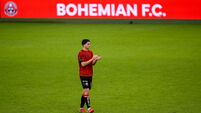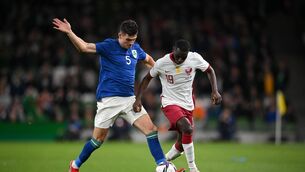Greeks proud of Herculean efforts
Greece’s heroic and romantic victory over Russia which guaranteed them a place in the quarter-finals of Euro 2012, eight years after they dramatically won the same tournament in Portugal, must have left supporters across Ireland screaming the same thing out loud: If they can do it, why can’t we?
They wouldn’t have been alone, however. Every small and mid-sized international team across the world has studied Greece’s results at some stage over the last decade and wondered what lessons could be learned from the way they have punched above their weight so hard and so consistently.














